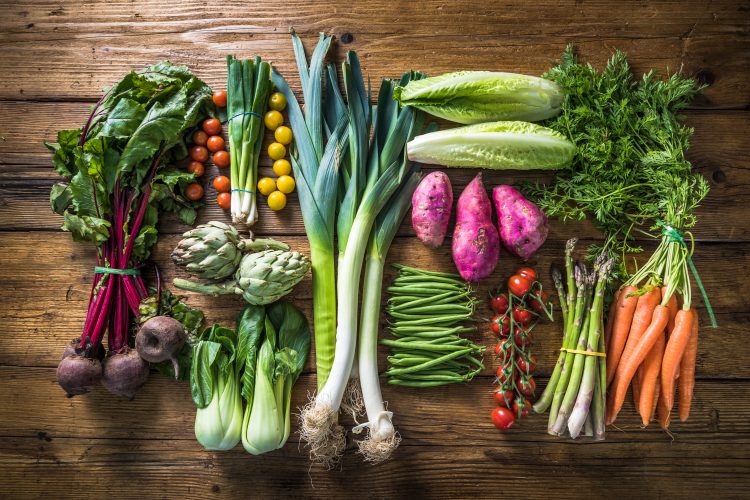Vegetables do not protect against cardiovascular disease, study suggests
- Like
- Digg
- Del
- Tumblr
- VKontakte
- Buffer
- Love This
- Odnoklassniki
- Meneame
- Blogger
- Amazon
- Yahoo Mail
- Gmail
- AOL
- Newsvine
- HackerNews
- Evernote
- MySpace
- Mail.ru
- Viadeo
- Line
- Comments
- Yummly
- SMS
- Viber
- Telegram
- Subscribe
- Skype
- Facebook Messenger
- Kakao
- LiveJournal
- Yammer
- Edgar
- Fintel
- Mix
- Instapaper
- Copy Link
Posted: 21 February 2022 | Abi Sritharan (New Food) | No comments yet
A large-scale study published in Frontiers in Nutrition found that – despite popular belief – consuming vegetables does not always lower the risk of cardiovascular disease.


Is there a link between vegetable consumption and the risk of cardiovascular disease (CVD)? Researchers from the Nuffield Department of Population Health at the University of Oxford, the Chinese University of Hong Kong, and the University of Bristol conducted a study to find out.
The researchers used the UK Biobank for their study; this follows the health of half a million adults in the UK by linking to their healthcare records. Upon their enrolment in 2006-2010, these volunteers were interviewed about their diet, lifestyle, medical and reproductive history, among other factors.
The researchers used the responses of almost 400,000 participants to question their current daily average consumption of uncooked versus cooked vegetables. They then analysed the answers and compared them with the risk of hospitalisation or death from myocardial infarction, stroke, or major CVD. They noted a wide range of possible confounding factors, including socio-economic status, physical activity, and other dietary factors.
“The UK Biobank is a large-scale prospective study on how genetics and environment contribute to the development of the most common and life-threatening diseases,” said Professor Naomi Allen, UK Biobank’s chief scientist and co-author on the study, “Here we make use of the UK Biobank’s large sample size, long-term follow-up, and detailed information on social and lifestyle factors, to assess reliably the association of vegetable intake with the risk of subsequent CVD.”
The researchers also assessed the potential role of ‘residual confounding’. This is whether unknown additional factors or inaccurate measurement of known factors might lead to a link between CVD risk and vegetable consumption.
In the study, the mean daily intake of total vegetables, raw vegetables and cooked vegetables was 5.0, 2.3, and 2.8 heaped tablespoons respectively per person. The analysis found the risk of dying from CVD was about 15 percent lower for those with the highest vegetable intake compared to the lowest. However, this apparent effect was substantially weakened when possible socio-economic, nutritional, and health and medicine-related factors were taken into account. When factors such as these were were taken into consideration, the effectiveness of using vegetable intake to predict the risk of CVD fell by more than 80 percent.
The findings challenge previous research that suggests eating more vegetables is linked to a lower risk of CVD.
Researchers say past studies may not have taken into account lifestyle factors such as smoking, drinking alcohol and meat intake – and socioeconomic factors such as a person’s education, income and wealth.
“Our large study did not find evidence for a protective effect of vegetable intake on the occurrence of CVD. Instead, our analyses show that the seemingly protective effect of vegetable intake against CVD risk is very likely to be accounted for by bias from residual confounding factors, related to differences in socioeconomic situation and lifestyle,” said Dr Qi Feng, a researcher at the Nuffield Department of Population Health at the University of Oxford, and the study’s lead author.
“This is an important study with implications for understanding the dietary causes of CVD and the burden of CVD normally attributed to low vegetable intake,” added Dr Ben Lacey, Associate Professor in the department at the University of Oxford, and co-author of the study. “However, eating a balanced diet and maintaining a healthy weight remains an important part of maintaining good health and reducing risk of major diseases, including some cancers. It is widely recommended that at least five portions of a variety of fruits and vegetables should be eaten every day”.
The researchers suggest that future studies should further assess whether particular types of vegetables or their method of preparation might affect the risk of CVD.
The findings of this study have been published in the scientific journal, Frontiers in Nutrition.
You may also like:
- Would a switch to a Mediterranean diet be kinder on the environment?
- Inflation hits hard: why we’re losing customers to food banks
- Switching to olive oil could reduce risk of cardiovascular disease
Related topics
Related organisations
Chinese University of Hong Kong, The University of Bristol, University of Oxford, University of Oxford’s Nuffield Department of Primary Care Health Sciences









